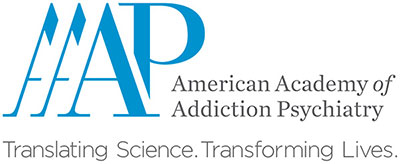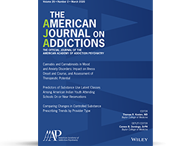Applying to Addiction Psychiatry Fellowships
Applicants may begin submitting applications for fellowship through ERAS on July 3, 2024. You can find a current list of all Addiction Psychiatry fellowship programs on ACGME website program search for specialty Addiction Psychiatry.
AAAP Education Committee leadership is available to provide guidance to medical trainees and attendings considering a career in addiction psychiatry. If you have questions about the field of addiction psychiatry or addiction psychiatry fellowship training please contact: Alexis Ritvo, MD, AAAP Chair, Education Committee at [email protected].
Available Addiction Psychiatry Fellowship Positions
The majority of Addiction Psychiatry Fellowship Programs utilize the electronic residency application service (ERAS) and most programs (~46/53) also participate in the national residency matching service (NRMP), i.e “the match” to recruit for their program. Addiction psychiatry is part of the “Medicine and Pediatric Specialties Match” and NOT the “Psychiatry Fellowship Match”.
- Applications: ERAS begins accepting fellowship applications around first week of July and releases applications to programs as of mid-July. (If a program is not participating in ERAS then reach out to them directly about their application requirements and process.)
- Interviews typically occur between August and October.
- Programs not participating in the match will accept applicants on a rolling basis.
- Match results for participating fellowships (~46/53 programs) are released by NRMP the end of November.
- As of December of each year, applicants may contact programs that had participated in the match directly about applying to fellowship positions that remain available for the upcoming July.
For more information on the application process please visit individual program websites, the ERAS website, and The NRMP Match (Please note that addiction psychiatry is part of the NRMP “Medicine and Pediatric Specialties Match” and NOT the “Psychiatry Fellowship Match” which is for Child Adolescent Psychiatry and CL Psychiatry.)
Match Key Dates
August 21st – Match Opens
September 25th – Ranking Opens
November 20th – Rank Orders are Due
December 4th – Match Day
The AAAP Program Fellowship Committee developed this helpful resource to help you search for loan repayment opportunities at the federal and state levels. If you know of an opportunity not listed, please let us know by emailing [email protected].
*updated as of 8/23/24
View Loan Forgiveness Resources ›
How to Apply for an Addiction Psychiatry Fellowship – On-Demand Webinar
AAAP and the APA’s Council on Addiction Psychiatry invite you to watch this on-demand webinar on how to navigate applying for an Addiction Psychiatry Fellowship. Watch this discussion with a panel of Fellowship Program Directors to learn about the application process and have all your questions answered.
Why Do an Addiction Psychiatry Fellowship?
Michael A. Dawes, M.D. and John A. Renner Jr., M.D.
Recent government data indicate that almost 50 million people aged 12 and older had a substance use disorder in 2022. The need for skilled and caring addiction psychiatrists has never been greater. Is this field for you?
Published online on May 21, 2024 by the American Psychiatric Association. All rights reserved.
AAAP Podcast Episode 7: Everything you need to know before applying for Addiction Psychiatry fellowship in 2024
Tis the season for psychiatry residents to put together their fellowship application, and Dr. Alexis Ritvo, program director for the University of Colorado Addiction Psychiatry is here to give you a rundown on the application process, as well as some pointers on shaping up your application and finding the program that’s right for you.
The field of Addiction Psychiatry welcomes medical trainees and attendings who are interested in utilizing a J-1 or H-1B visa to complete addiction psychiatry fellowship training. Several AAAP Education Committee members have personal experience utilizing the J-1 and H1-B visa to complete addiction psychiatry fellowship training and are available to help guide applicants through the process.
For applicants currently on a J-1 visa or interested in obtaining a J-1 visa please contact:
For applicants currently on an H1-B visa or interested in obtaining an H1-B please contact:
Applicants who completed medical school and psychiatry residency in a non-ACGME accredited psychiatry residency in another country and are interested in training in an ACGME addiction psychiatry fellowship are considered “exceptional candidates”. Programs participating in the match may only consider accepting these applicants after the match occurs at the end of November. We do our best to keep an up-to-date list of programs currently accepting these “exceptional candidates” in the corresponding column in this spreadsheet.
What is Addiction Psychiatry?
Addiction Psychiatry is an official subspecialty of general psychiatry. The American Board of Psychiatry and Neurology, Inc. certification for Addiction Psychiatry began in 1993. The ABPN is one of 24 member boards of the American Board of Medical Specialties (ABMS). ABPN offers certification in the subspecialty of Addiction Psychiatry to physicians who have completed accredited residency programs in general psychiatry. To sit for the addiction psychiatry boards, fellows are required to submit documentation of successful completion of an ACGME-approved fellowship training in Addiction Psychiatry beginning no sooner than the PGY-V level. Applicants can obtain information and application procedures for the Addiction Psychiatry boards from the American Board of Psychiatry and Neurology by calling 847-945-7900 or visiting the ABPN Web site.
What is the educational pathway to becoming an Addiction Psychiatrist?
Addiction Psychiatry is a subspecialty of psychiatry that requires completion of a one-year full-time ACGME-accredited fellowship program. After general psychiatry residency training, psychiatrists are eligible to complete a one-year full-time Addiction Psychiatry Fellowship or a part-time program for up to two years. Some two-year fellowships allow additional training in addiction research. A list of ACGME accredited fellowships can be found on Fellowships & Programs.
Are Addiction Psychiatrists board certified?
The American Board of Psychiatry and Neurology (ABPN), a member board of the American Board of Medical Specialties (ABMS), governs the certification of the subspecialty of addiction psychiatry. Candidates for Addiction Psychiatry subspecialty certification must: 1) complete an Accreditation Council for Graduate Medical Education (ACGME) accredited general psychiatry training program; 2) complete an ACGME Addiction Psychiatry training program; 3) obtain board certification in psychiatry prior to taking the Addiction Psychiatry certification examination from the ABPN; and 4) pass the Addiction Psychiatry certification examination from the ABPN.
What are the differences and similarities between the subspecialties of Addiction Medicine and Addiction Psychiatry?
Addiction Medicine and Addiction Psychiatry are the sister medical specialties that focus on the diagnosis and treatment of individuals with substance-related and addictive disorders. Therefore, there is significant overlap between these two medical sub-specialties in terms of patients and organizations served, clinical policies and guideline development efforts, and local and national advocacy interests. There are some significant structural and organizational differences, though, between the two subspecialties that are worth describing. Addiction Psychiatry became an ABMS subspecialty in the U.S. in 1993, and since that time board-certified/eligible psychiatrists have been eligible to undertake fellowship training through any of the now 47 Addiction Psychiatry fellowships. Upon completion of an Addiction Psychiatry fellowship, candidates are then eligible to sit for the ABPN-administered board examination in Addiction Psychiatry to obtain board certification. The subspecialty of Addiction Medicine, on the other hand, was officially recognized by ABMS and ACGME in 2017. Physicians with primary certification from any ABMS board (internal medicine, pediatrics, obstetrics-gynecology, etc.) are eligible to take the Addiction Medicine board exam, which is now administered by the American Board of Preventive Medicine (ABPM). Physicians who meet certain practice eligibility requirements or who have maintained “American Board of Addiction Medicine diplomate status” are eligible to achieve subspecialty certification through ABPM through 2021, after which time only those who complete an ACGME accredited Addiction Medicine fellowship will be eligible for the ABPM board exam. Some addiction-focused psychiatrists have chosen to be boarded in BOTH addiction psychiatry and addiction medicine, and many physicians regardless of primary training remain active in professional organizations that serve both specialties (e.g., AAAP and ASAM). While it may be academic to parse out given the similarities and shared goals stated above, addiction psychiatry nonetheless maintains a professional identity that centers on the diagnosis and treatment of co-occurring mental illness and substance-related and addictive disorders, and thus AAAP strongly encourages psychiatrists to consider completing an Addiction Psychiatry fellowship program.
Why choose Addiction Psychiatry as a career?
The practice of Addiction Psychiatry affords opportunities in clinical, research, and administrative career development. Growing sophistication in our understanding of the factors that contribute to substance misuse and use disorders has led to therapeutic strategies tailored to specific subgroups of those who misuse substances. Novel pharmacological strategies have been developed and are being implemented to target individuals for whom affective, attentional or anxiety symptoms pose a particular vulnerability to the development of a substance use disorder. Further, a career in Addiction Psychiatry affords ample opportunities. The shortage of specialists in addiction treatment has increased clinical and administrative job opportunities in both public and private sectors, and other areas of clinical psychiatry. Child and adolescent, consultation-liaison, geriatric, and forensic psychiatric practices have a growing interest in incorporating addiction subspecialists. These opportunities are also abundant in research, as federal funding for translational research in the field of addiction has increased in recent years, with a particular focus on treatment and health services and delivery. Perhaps most compelling is that, like the treatment of other psychiatric disorders, clinical interventions for substance use disorders are effective, with data showing that treatment promotes improvements in social functioning and psychological and physical health. These outcomes make the clinical work tremendously rewarding.
What role can the American Academy of Addiction Psychiatry play in my career?
AAAP is the only professional organization in the U.S. focused on the subspecialty of Addiction Psychiatry and is an educational and knowledge resource for members and the general public. AAAP’s annual meeting is a great way to obtain knowledge and training, as well as network with Addiction Psychiatrists from across the U.S. AAAP provides members with training activities for Maintenance of Certification (MOC) credit towards Addiction Psychiatry board recertification. AAAP offers educational products for clinicians and trainees at all stages of training.
What would an addiction fellowship add in terms of job opportunities?
The addiction field in general and in particular Addiction Psychiatry are in need of expert physicians, several faculty and staff-physician positions for addiction psychiatry remain open for several months or more every year and some go unfilled for more due to the high demand and mow number of specialized physicians relative to other sub-specialties.
Are their resources for Addiction Psychiatrists to refer once they are in their own practices?
Yes, there are many resources available to practicing Addiction Psychiatrist. One such resource is Providers Clinical Support System (PCSS). Go to pcssNOW.org to learn more.
How can I find an Addiction Psychiatry Fellowship program?
The ACGME maintains a complete list of accredited programs along with each program’s relevant contact information. The American Psychiatric Association (APA) Clearinghouse also maintains a list of vacant psychiatry residency and fellowship positions, which may be particularly helpful for those starting a program off-cycle.
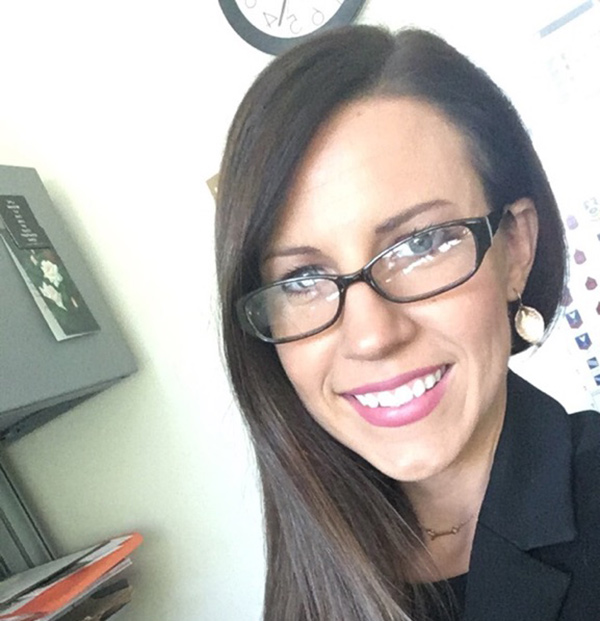
“Talking with addiction specialists during residency sparked my interest in the field even though my training/exposure in addiction was limited while in residency. I think I first started becoming interested in furthering my experience in the field when a mentor told me “No one enjoys this lifestyle, everyone who suffers from addiction hates their addiction, but it is so powerful they don’t know how to beat it.” This opened my eyes to a population of people who are constantly blamed and shamed for their disease and sent away from ERs and hospitals because of inexperience in how to treat addiction and lack of resources. I knew then I was interested in furthering my experience in the area and doing what I could to help this special population.”
– Heather Oxentine, MD, Addiction Psychiatry Fellow 2016- 2017, Emory University
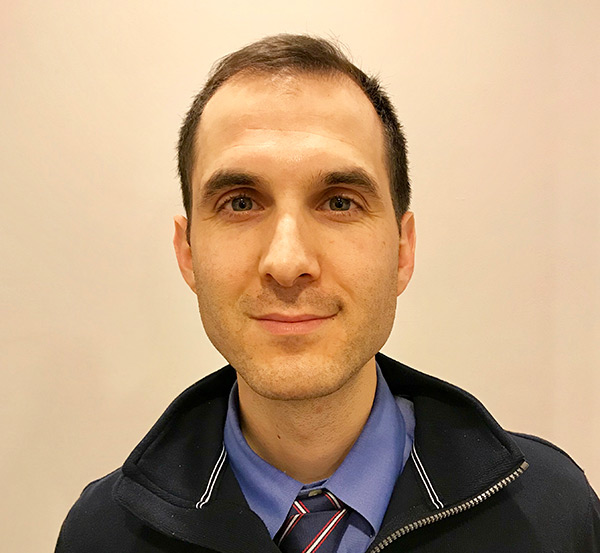
“Because I sought out come extra addiction experiences in residency, I was unsure what to expect from addiction psychiatry fellowship. I could not have imagined how much more confident I would feel in providing high quality care to patients with addictions. The opportunity across clinical settings to see so many patients who vary in background, culture, and SUD severity under supervision from experts was invaluable to putting these disorders in their proper context alongside other mental illnesses. I am extremely grateful I decided to do an addiction psychiatry fellowship.”
– Dave Marcovitz, MD, Addiction Psychiatry Fellow 2017-2018, Partners HealthCare
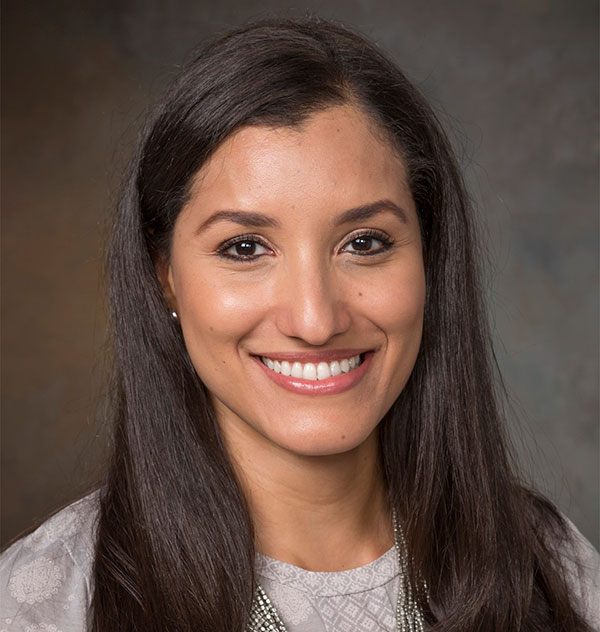
“During residency training I developed a particular interest in treating patients with substance use disorders. An addiction psychiatry fellowship provided me with the clinical skills to treat very complicated cases in a way that was comprehensive and collaborative. I learned not only about pharmacotherapy that could be useful in treatment, but also about multiple psychotherapy modalities, and perhaps most importantly, how to serve as an advocate for my patients – with their employers, families, and other clinicians. As an early-career addiction psychiatrist, I now utilize these skills to advocate for the effective treatment of patients with substance use disorders in all clinical settings, provide education and support for colleagues, and gain a better understanding of cultural and gender differences in the treatment of addiction.”
– Caridad Ponce Martinez, MD, Addiction Psychiatry Fellow 2015-2016, Yale School of Medicine
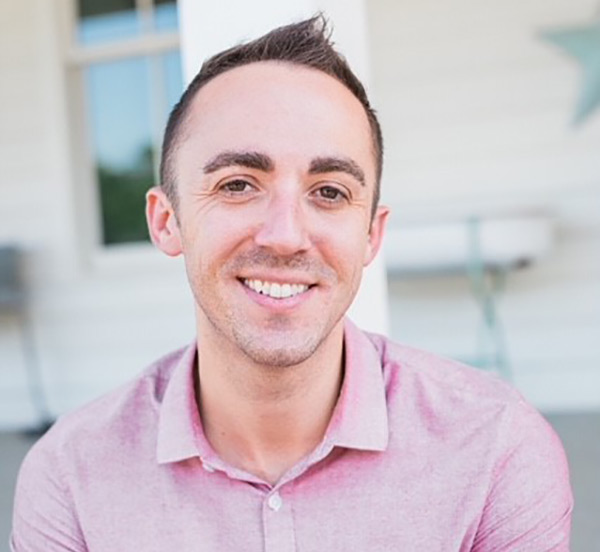
“What I find most rewarding about treating patients with substance use disorders is treating them as whole and unique individuals. I believe that the added consideration for emotional, cognitive, and behavioral aspects of the individual are key to understanding and treating substance use disorders. My addiction psychiatry fellowship has allowed me to gain invaluable experience and training for treating patients with complex addictive disorders within psychiatric and psychological contexts. The additional time after residency was time well-spent in gaining a better understanding of these complex disorders, and where they fit into the biopsychosocial model.”
– Derek Blevins, MD, Addiction Psychiatry Fellow (T32), 2017-2019, Columbia University
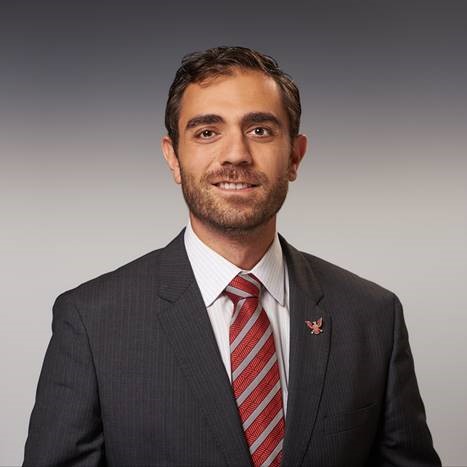
“It became clear to me during residency training that I wanted to work with the substance using population and that I was ‘good enough’ to treat substance use disorders (SUD) even without fellowship training. I decided to pursue the additional subspecialty training because I knew “good enough” is not sufficient. In fellowship, I sought qualified supervision and rich exposure to complex cases, unusual presentations, rare and experimental substances or complicated comorbidities. I wanted to develop a proficiency in understanding the nuances in presentation and the complexities of SUD treatment. I also benefited from working with leaders in the field who advise lawmakers and government agencies, and was exposed to their work shaping addiction related policies.”
– Elie G. Aoun MD, Addiction Psychiatry Fellow, 2016-2017, University California, San Francisco
Use this map to explore the addiction psychiatry fellowship programs available across the US. There is a map pin for each program which includes a link to that program’s webpage.
